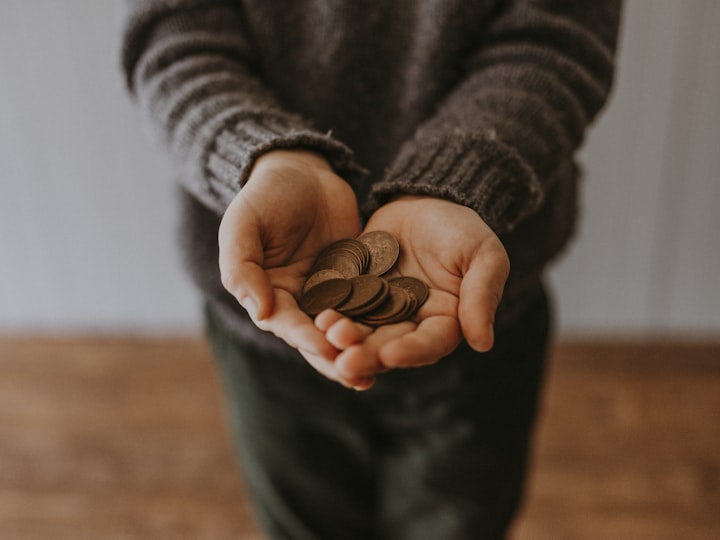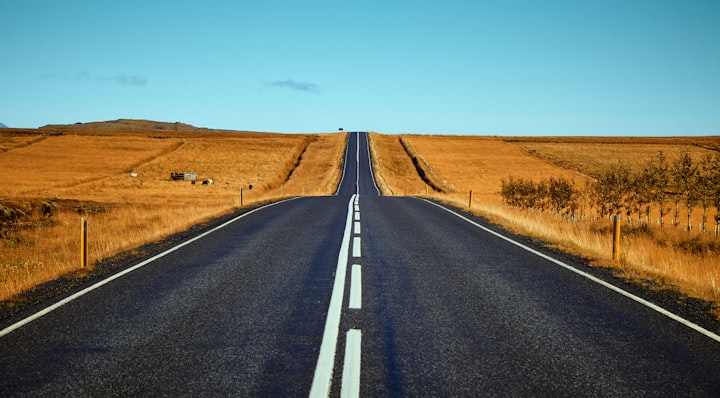3 Essential Tips For Budgeting While You Travel
How to avoid coming home penniless

Back when travel was still allowed, I went through a series of major life changes that ended with me boarding a ferry and driving around Europe for 3 months.
If in doubt, travel. Words to live by.
It was the first time I had undertaken such a major adventure all on my lonesome, and so I decided to really jump in with everything I had.
I returned, a quarter of a year later, having had some of the most incredible experiences of my life, but also damn near bankrupt.
I won't go into how much I spent, but let's just say I was comfortable before I left, I lived very well on the road, and then I came back to the worst financial situation I've ever been in. I had completely failed to budget my travels, and I am still dealing with the consequences.
Obviously, this was entirely my own fault, and I would never claim otherwise. Hopefully, however, you will be able to learn from my mistakes.
Whether you’re on a family holiday or a multiple-month adventure, knowing what you've got, what you want, and how to balance the two is of the utmost importance.
Beware of different currencies
Most people have an innate sense of the expensive/cheap spectrum in their own currencies. I live in the UK, so I know that £2.50 for a sandwich is pretty good, whereas £15 for a panini is incredibly expensive, for example.
When you go through life using a currency, you begin to get a general idea of how much things should cost, which then allows you to make well-informed judgments when figuring out how much you’re willing to pay for something.
Switching to another currency can completely ruin this subconscious grasp on value, leading people to massively overspend without even knowing that they’re doing it.
Naturally, this does depend on the currency. In my case, being used to British Pounds, I’m ok with Euros because while the conversion isn’t quite 1:1, it’s close enough that the numbers aren’t outlandishly different.
Czech Koruna, on the other hand, are a different story. The koruna to pound conversion is around 30:1, which means that, by comparison, numbers start to get really big, really quickly when I’m spending money in Czechia.
Trying to judge how expensive something is and then figure out how much you’re willing to spend on it is much harder without that subconscious understanding of the currency.
Seeing a souvenir on sale for 1200Kc, for example, will completely throw many people because if you come from a country like the UK or Germany, 1200 units of currency is a second-hand car, not a decorative plate.
So, don’t be afraid to break out the currency converters while abroad in countries with significantly different currencies. It can be so easy to fall into the trap of thinking ‘well, all the numbers are high here so I guess it’s not THAT expensive.’
If in doubt, work it out. Your bank account will thank you, trust me.
Remember: It’s incredibly easy to get carried away
New food. Exciting traditions. Fascinating sites. Travelling is intoxicating, which is why it’s so easy to get a bit… over-exuberant.
I speak from experience here. A three-month road trip through Europe damn near bankrupted me, but that was only because I failed to budget as I went along. With a decent financial plan for the trip, I could have been on the road for twice as long.
But thinking about money can be hard, right? Especially when you’re in the middle of amazing experiences. The idea of missing out on an opportunity that you may never have again because of ‘the budget’ is understandably not a pleasant one.
My suggestion?
Restrict how much you spend on things that you can get elsewhere.

Whenever you’re thinking of spending money, take a moment to really consider what it is you are paying for. Is this a meal you could have anywhere? Then maybe try to cut down on how much it costs. I’m talking pizza outside of Italy, that kind of thing. Undoubtedly tasty, but not a unique experience that you couldn't get elsewhere.
The same goes for items and experiences. Theme parks are great, but wouldn't it be better to make use of local historical sites and unique opportunities? An expensive item of clothing might be lovely, but is it possible to get something similar back home?
Reading this now, you might be thinking ‘but Sean, I wouldn't spend money on those kinds of things while I’m abroad.’
Yeah, I thought that too. But if you're in the swing of things and enjoying your travels, you’ll notice that your financial self-restraint will start to fail you. That's why it can be good to think these kinds of thoughts occasionally and give yourself a moment to cool off from all the excitement and reprioritise your spending.
Cash is king
In most countries, cash is still very much the main method of payment used day-to-day.
This might surprise people from the UK or the US, where our plastic pays for almost everything. But, in truth, when you're travelling on a budget, cash is going to be your best friend.
It's all too easy to flash a card, hear that welcome beep, and be on your way. The process of contactless payments, while fantastic, has made it so much easier to overspend. No longer are you limited by how much cash you have to hand, now the only limit is what you've got in the account… or your overdraft.
So, when travelling, cash can be your best tool for budgeting. You don't need a complex spreadsheet or alerts set up on your phone when you overspend. Just get cash out at the start of the day, however much you think you’ll need, and stick to it. That's your budget for the day and when it's gone, it's gone.
This method works wonders because it makes overspending by accident an impossibility. With your card, you can just go over budget without really thinking about it, or even noticing. When you're using cash, the only way for your to overspend is if you physically make the decision to go and get more money out.
That's not an accident anymore then, is it?
Plus, and I can’t be the only one who thinks this, using physical currency that's different from what you're used to is great fun and a really enjoyable part of travel… so, it’s a win-win!

Takeaways
So, yes, you do need a travel budget if you want to make the most of your adventures and still have enough money to eat when you get home. But the task of budgeting doesn't have to be that arduous, and there are some really simple pitfalls that you can watch out for.
1. Beware of different currencies. Your subconscious ability to judge value might not work abroad, so don't be afraid to break out the currency converter.
2. Know that it's easy to get carried away. Consider how essential it is to buy something in the here and now.
3. Cash is your best friend when budgeting. Take out however much you want to spend, and then don't take out any more. Overspending becomes literally impossible.
About the Creator
Sean Bennett
Writer, producer, editor and all-round curious so and so. Writing about politics, being queer, and anything else that springs to mind! (He/Him) Get in touch at - [email protected]






Comments
There are no comments for this story
Be the first to respond and start the conversation.